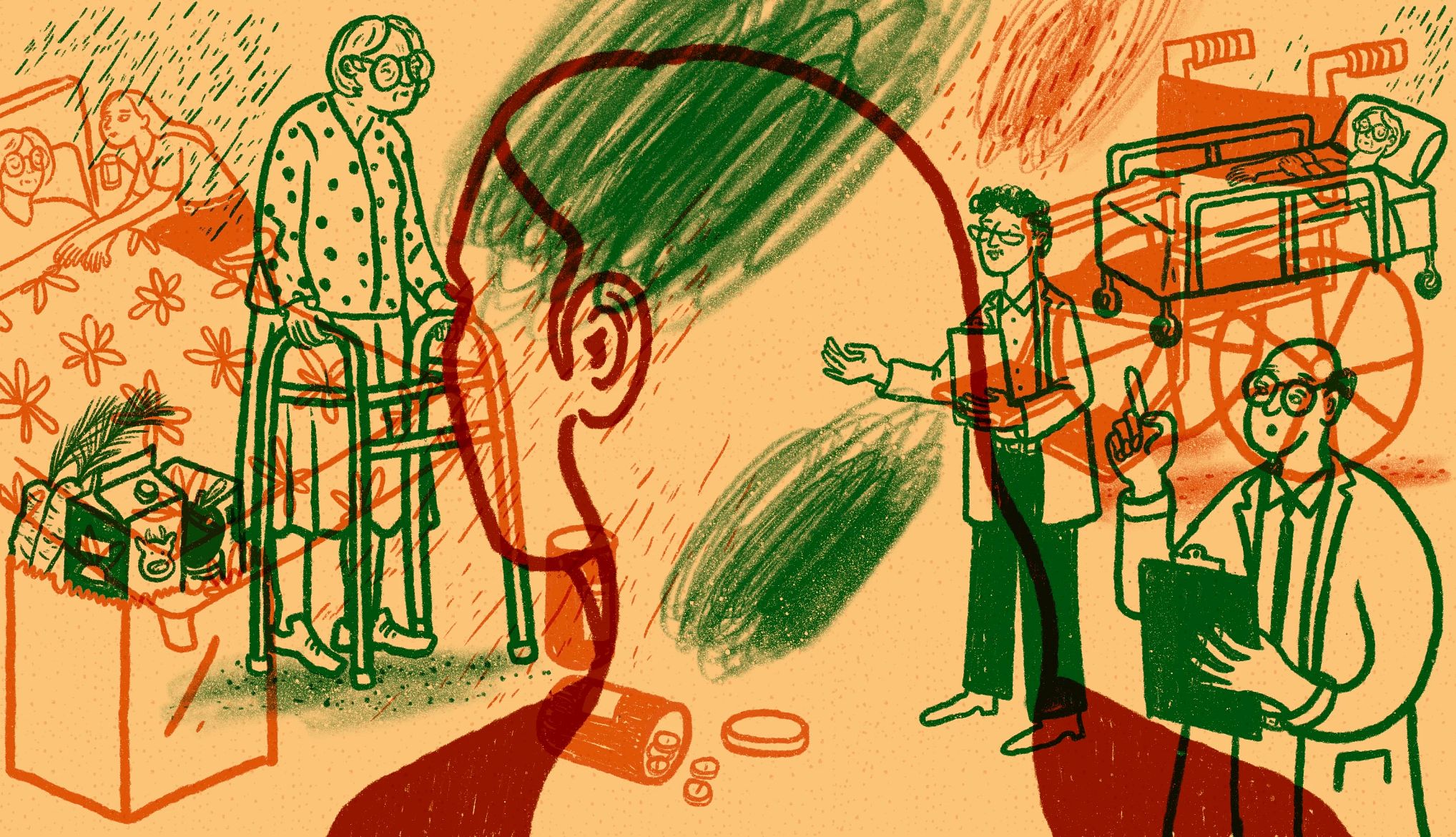AARP Hearing Center


Editors asked AARP Family Caregivers Discussion Group members and other caregivers to submit pressing questions they’d like family therapist and clinical psychologist Barry Jacobs to tackle in his caregiving column. Jacobs took on this hot-button topic:
Q: My mother is dying of cancer, and I feel overwhelmed with caregiving — [especially juggling] doctor’s appointments, work and making sure that she’s OK. I don’t feel the care is very good, so I’m trying to stay on top of the medical team (they missed that her oxygen was so low that she needed supplemental oxygen). But then I’m missing that she can’t shower by herself until I notice she hasn’t bathed in a while. I know it’s important to take deep breaths. And I’m trying to create memorable moments with friends because I know having some good moments is important. But I can’t enjoy them because I feel like I’m having a nervous breakdown.
(Letter edited for length and clarity.)
Barry Jacobs: That’s terrible. It sounds like you’re experiencing the drowning feeling that many caregivers have when swimming as hard as they can but being swept away by a riptide. The professionals who should be throwing you a secure lifeline aren’t. Grief about your mother’s impending death may be weighing you down like lead boots. The result is terror of going under.
Many caregivers who are slammed by wave after wave of care demands experience this. Those caring for someone who is dying are hit harder. In a disease’s terminal phase, stakes are high and time is often short. Caregivers feel greater urgency to get everything done before the end, while balancing work and other responsibilities. Still, they panic that they can’t do enough fast enough or well enough, causing their family members to suffer.
Join Our Fight for Caregivers
Sign up to become part of AARP's online advocacy network and help family caregivers get the support they need.
You sound like you are doing what you can to keep your head above water during this end-of-life caregiving by taking deep breaths to relax any tension, connecting with friends for social support whenever possible and perhaps engaging in other self-care activities. But preventing a “nervous breakdown” will also require handling three separate tasks — ensuring the right care, documenting wishes and saying goodbye.
Ensuring the right care
Your question shows that you are diligently focused on ensuring your mother gets the right care at any given time. That could include helping her with activities of daily living (ADLs), such as showering, dressing and feeding, and instrumental activities of daily living (IADLs), such as managing finances, cleaning, shopping and taking her medications safely. Prompting her doctors to be attentive and responsive, as you point out, is a big part of caring for her well. So would be equipping her with assistive devices, such as a walker, or making environmental modifications to her home, such as putting in a stair lift if she is unsteady on her feet and at risk of falling.





































































More From AARP
The 10 Most Common Complaints from Caregivers
Biggest issues caregivers face and how to resolve them
New to Family Caregiving? 10 Tips on How to Get Started
Get advice and resources from experts and fellow caregiversSkills to Support and Care for Loved Ones
6 skills that will help you understand your parents' wishes